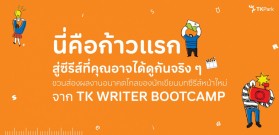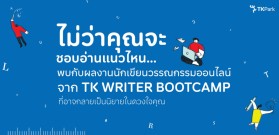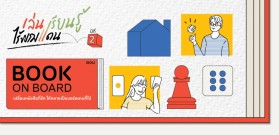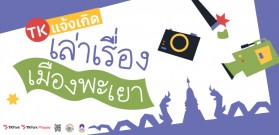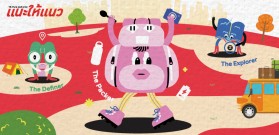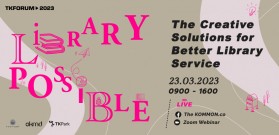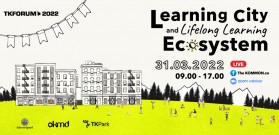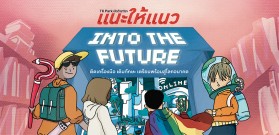TK Forum 2014

TK park started to organize TK Forum as a public forum in 2012 so those working to promote reading and learning could share their experience. In the first forum, over 50 organizations and networks came up with a body of knowledge that resulted in recommendations on reading promotion policies. Those who worked to promote reading and learning shared their knowledge and personal experience which others could observe and use as working guidelines. The knowledge and ideas gained from the meeting were compiled and presented as policy recommendations to the public sector for further support and endorsement.
Later on in 2010, TK Forum expanded the body of knowledge from simply sharing reading promotion experience to practices in countries whose reading promotion policies were implemented successfully. These countries include Sweden, South Korea, and Japan, where citizens love to read. This love of reading in turn provided a body of knowledge which served as a strong foundation on which the countries’ advancement was built.
In 2011, TK Forum was honored to receive various reading promotion advocates from Asian countries such as Singapore, Laos, and Vietnam, who came to share their experience. The event was upgraded to the national level with the organization of the Thailand Conference on Reading 2011 which was held for the first time that year and continued until the beginning of 2013. The three conferences were under the theme of “Towards ASEAN Citizenship with Books and Reading” so as to develop awareness among countries in ASEAN and build collaboration in reading and learning source development policies. It was hoped that this would lead to a close mutual understanding among ASEAN member countries.
By the end of 2013, TK park once again held the TK Forum entitled” 3-D Reading: Analyze, Criticize, Interpret—Developing in-depth reading and ways to promote analytical reading among youngsters.” This was an attempt to motivate those working to promote reading to be aware of the importance of deeper reading, which means reading analytically, imaginatively, logically, and being able to synthesize new ideas or link them with individual experience. Readers were also encouraged to think critically and assess what they read in terms of its usefulness and merit, rather than in terms of quantity.
In 2014, the aim of the TK Forum is still to expand the body of knowledge in education and learning to be in line with changes in information technology and the new generation’s quest for knowledge behaviors. With the emergence of the “Digital Generation” that will carry the nation into the future, the theme of the TK Forum is “Learning in the Digital Era”. This seeks to answer the question of who makes up the digital generation, what characteristics and learning behaviors they have, what the learning trends and styles of the digital-age world are, and what adults should understand and how they can help the new generation prepare for the future. The Forum will also seek to find appropriate learning systems or structures that suit the digital-age as well as test ideas and learning innovations that will inspire the digital generation.
TK Forum 2014 aims at fostering cooperation, exchange of experience and body of knowledge about reading, reading promotion, source of learning development, and learning systems and structure, so that policy makers, academics, experts, as well as social advocates can take the knowledge, ideas and suggestions from the forum and disseminate it, leading to real change.
The target group of TK Forum includes executives from both public and private sectors, teachers, librarians, academics, and social advocates who have a role in promoting reading, learning and developing learning sources.
The Forum will take place on two separate days. The first will be held on Thursday June 19, 2014 at Centara Grand at Central World, Bangkok, and the second on Thursday June 26, 2014 at the Multipurpose Learning Center, TK park, 8th floor, Central World.
We do hope that TK Forum 2014 can help spread the word in the promotion of reading, learning, and development of learning sources among policy making agencies and reading promotion networks so they are aware of the importance of reading, and adapt the ideas and suggestions to their work or academic reference to improve academic cooperation among domestic and international organizations.


